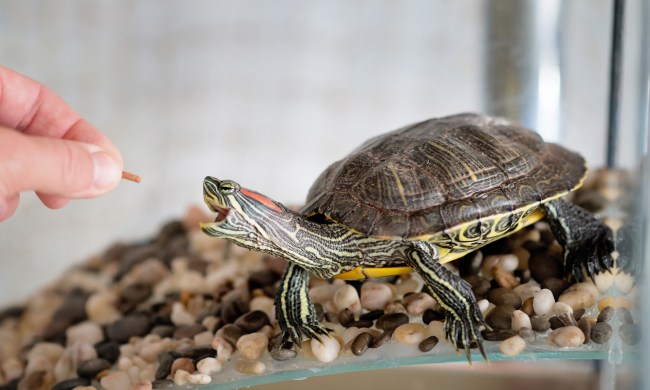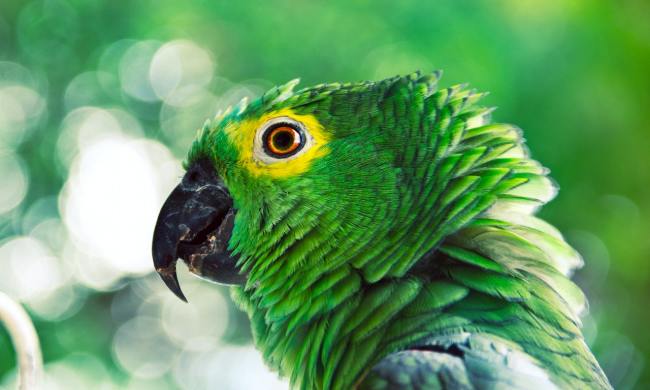Many have yearned for an ugly adorable duckling to call their own, but don’t dive into this journey without some planning first. Under the right circumstances, ducks make great pets — they’re cuddly, they’re very intelligent, and they’re social. These birds specifically love to be part of a group, sometimes called a raft, and will bond with both you and one another. As with many pets though, owning a duck comes with a list of good (and not-so-good) things to consider before you gather your flock.
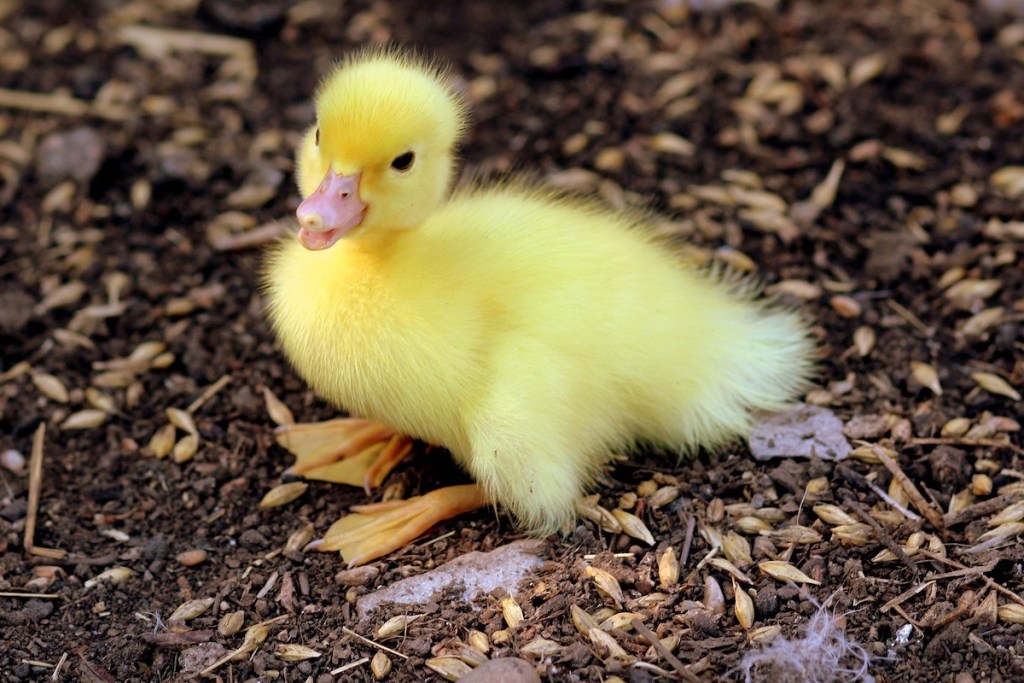
Are ducks good pets? Here’s what you need to know
As with all pets, it depends on what you’re looking for. Be mindful of their need for space, water, outdoors, companionship, and protection. Ducks are not for everyone but will add a spunky sense of fun to the right home. Think about these eight things before getting ducks.
They live outdoors
Rule number one: Your pet duckling must live outside. They just can’t be happy in any type of fully indoor enclosure, though you will want to provide some respite from the elements. Only dabble with ducks if you can secure sufficient outdoor space for them — free from predators, including dogs and cats who might mistake your cute and snuggly pet for a meal.
They need a house with a pool
Many folks keep their pet ducks in a shed or doghouse to provide a perfect cozy spot for them. Include a comfy straw bed and protection from wind. Of course, ducks need a pool for swimming, too. A pond or kiddie pool will do well, depending on how big your flock is. Ducklings can’t fly, so you don’t have to worry about them escaping, but they won’t thrive unless they have ample space. Fencing around your yard will help keep pets in and predators out.
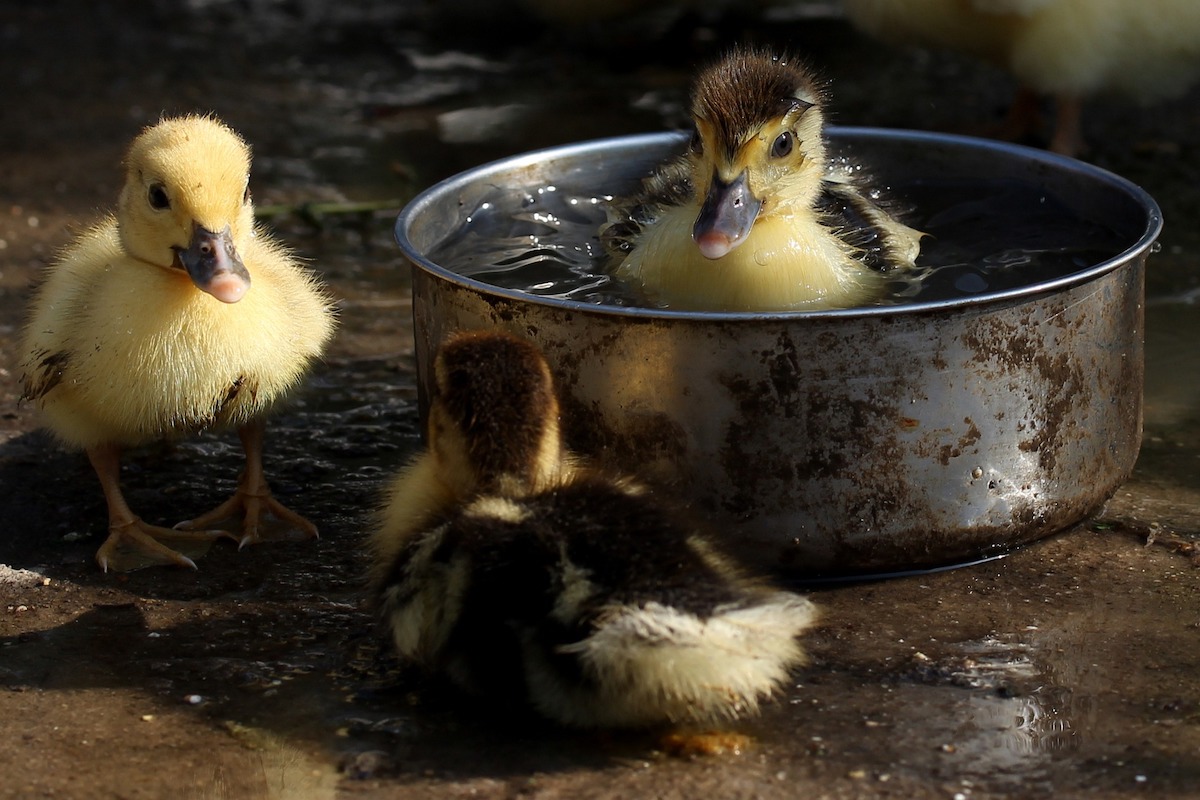
They eat special food
Baby ducks require a highly specific feed, and even as adults, pet ducks need a more tailored meal than their wild counterparts. For the first few weeks, you must provide a duckling-specific nutritious starter to keep them going and happy. Adult ducks can eat chicken feed (duck feed is hard to find), but you should add some supplements to ensure they get the correct nutrients. On top of the pellets you offer, ducks like grubs and greens from the yard.
They love to talk
And it’s loud. Forget the rooster crow; you’ll wake up to a chorus of quacking from your new pets. It’s not just noise to them. This is how ducks communicate with one another. Some species are known for being quieter, and males tend to chat less than females. You may be able to find the right match with a little research, but check into noise restrictions in your area before committing to this crew.
They can feed you
Duck pets mean duck eggs. Your lady ducks will provide eggs for up to 10 years in almost all seasons. In fact, they usually lay more than chickens, and you may prefer the flavor and texture over a standard, grocery-store egg. To make eggs, birds need to stay healthy, with plenty of yummy food and water to keep them laying.
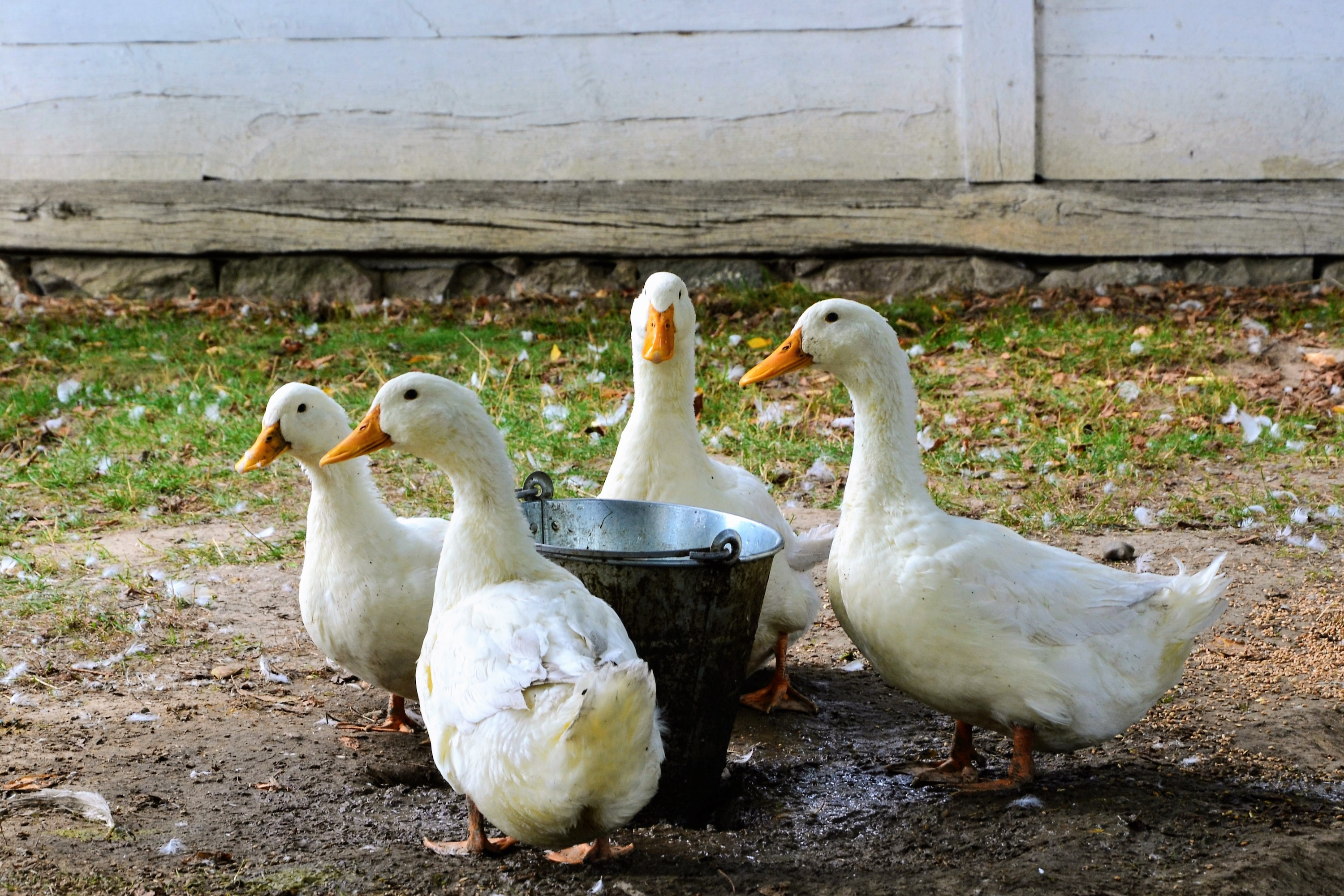
They come in flocks
You can’t keep a single duckling on its own. Your waterfowl want to run in a pack and need avian companionship to thrive in your backyard. However, sometimes ducks will fight each other and need to be removed, which can prove difficult if you set up a small yard for a little group. Additionally, mating ducks can be tricky. Don’t embark on this if you are a newbie and aren’t ready for the whole process. Mating-related injuries can be serious and even kill female ducks.
They can be messy
It’s actually not as bad as you might think, but of course, these little animals make a big mess. Luckily, they don’t smell as bad as chickens and are not prone to pests, such as fleas and ticks. You can look into diapering your animals but that comes with a whole different set of tasks (mainly changing it every four hours). Since your ducks spend quite a bit of time in the water, it will get cloudy quickly. Change that once per day and replace straw as it soils as well.
They’re cute and fun
Don’t let all this deter you from keeping a group of duckies. Your flock will be lovable and enjoyable with the right amount of space and enough to do. Like many other pet birds, ducks are smart and so need the proper stimulation and socialization. Hand-raising your pets will encourage them to bond closely with humans, so you always have happily quacking companions.
Once you weigh the pros and cons, you might choose this playful creature if you have a large outdoor space that lends itself to a duck house and pond. Keep in mind, many cities actually prohibit owning these animals. You need to carefully review all local laws and restrictions before getting this pet and putting in a sizable home for him. If well cared for, your new birdies will live 10 years or more and bond with you for life.


